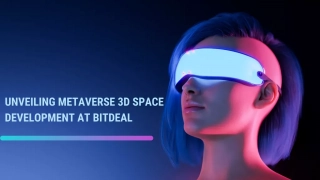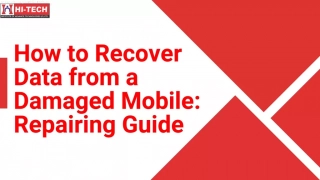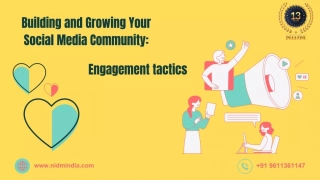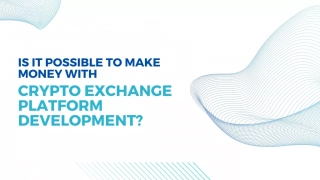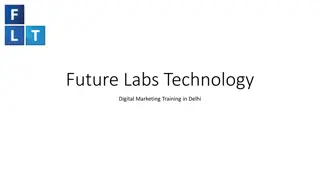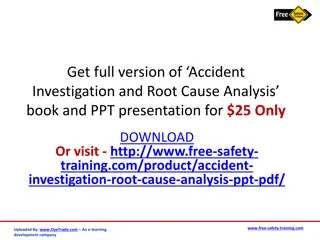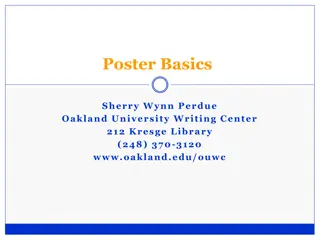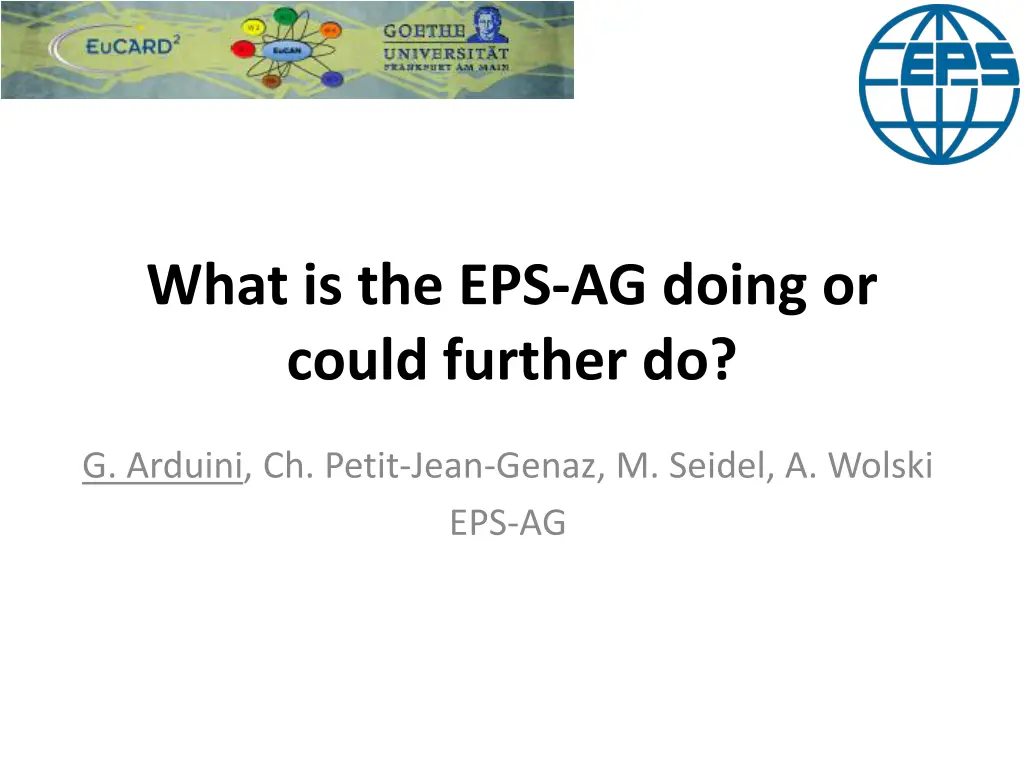
EPS-AG Initiatives and Collaborations in Particle Accelerator Technology
The EPS Accelerator Group (EPS-AG) comprises over 220 members and is managed by a dedicated Elected Board. The group aims to advance research, development, and applications of particle accelerators, foster international cooperation, and promote efficient resource utilization. EPS-AG organizes the International Particle Accelerator Conference (IPAC) in Europe and supports events like the European Particle Accelerator Conferences (EPAC). Learn more about EPS-AG's contributions and future prospects in the field of accelerator technology.
Download Presentation

Please find below an Image/Link to download the presentation.
The content on the website is provided AS IS for your information and personal use only. It may not be sold, licensed, or shared on other websites without obtaining consent from the author. If you encounter any issues during the download, it is possible that the publisher has removed the file from their server.
You are allowed to download the files provided on this website for personal or commercial use, subject to the condition that they are used lawfully. All files are the property of their respective owners.
The content on the website is provided AS IS for your information and personal use only. It may not be sold, licensed, or shared on other websites without obtaining consent from the author.
E N D
Presentation Transcript
What is the EPS-AG doing or could further do? G. Arduini, Ch. Petit-Jean-Genaz, M. Seidel, A. Wolski EPS-AG
Who are we? EPS-AG: more than 220 members The EPS-AG is managed by an Elected Board (18 Members). Elections to the Board are held as a rule every three years, and a General Assembly takes place during each IPAC in Europe. G. Arduini et al. - What is the EPS-AG doing or could further do? 30/09/2014 2
Elected Board Members (2014-17) Board Chair and IPAC'17 OC Chair Gianluigi Arduini, CERN Board Chair-Elect and IPAC'17 SPC Chair Mike Seidel, PSI Former Board Chair, Ex-officio Andy Wolski, U. Liverpool, Cockcroft Institute CERN Paul Collier, Maurizio Vretenar, Frank Zimmermann Philip Bambade, LAL Marie-Emmanuelle Couprie, SOLEIL France Board IPAC'17 SPC Chair and IPAC'17 OC Chair Board Chair-Elect and IPAC'17 SPC Chair Gianluigi Arduini, CERN, Elected 2008, Board Mandate 2011, 2014 IPAC'14 SPC Chair and Board Chair-elect, IPAC'17 Board and OC Chair Mike Seidel, PSI, Elected 2011, Board Mandate 2014, 2017 IPAC'17 SPC Chair and Board Chair-elect, IPAC'20 Board and OC Chair Andy Wolski, U. Liverpool, Cockcroft Inst., Elected 2008, Board Mandate 2011, 2014, IPAC'11 SPC Chair and Board Chair-elect, IPAC'14 Board and OC and Board Chair, 2014-2017 Ex-officio Board Member Susanna Guiducci, INFN/LNF Ralph Assmann, DESY Oliver Boine-Frankenheim, GSI Anke-Susanne M ller, FZK/ANKA Germany Former Board and IPAC'17 OC Chair, Ex-officio Italy Giovanni Bisoffi, INFN/LNL Angeles Faus-Golfe, IFIC Montse Pont, CELLS Spain Sweden Andreas Jansson, ESS Switzerland Hans-Heinrich Braun, PSI UK Deepa Angal-Kalinin, STFC/DL/ASTeC G. Arduini et al. - What is the EPS-AG doing or could further do? 30/09/2014 3
Aims of EPS-AG The aims of the EPS Accelerator Group are: to promote research and development of all kinds of particle accelerators and the associated technology, as well as their applications; to encourage contacts between specialists in the field in European and non-European institutions, in particular through the organization of the International Particle Accelerator Conference (IPAC) when held in Europe; to stimulate international co-operation and exchange of information; to promote efficient and effective use of resources and foster high standards. G. Arduini et al. - What is the EPS-AG doing or could further do? 30/09/2014 4
IPAC EPS-AG has organized the European Particle Accelerator Conferences (EPAC) since 1988 Strong support to the creation of an International Particle Accelerator Conference (IPAC) Aim: provide a comprehensive world-wide overview of the field of particle accelerators, as well as presentations of progress in all technologies involved. Since 2010 3-year cycle: Americas Asia (including Oceania) Europe (including Russia, Middle-East and Africa). G. Arduini et al. - What is the EPS-AG doing or could further do? 30/09/2014 5
IPAC An example: IPAC 14 in numbers 1405 scheduled contributions by more than 200 Institutions or Companies from 33 different countries 1287 Participants from 37 different countries G. Arduini et al. - What is the EPS-AG doing or could further do? 30/09/2014 6
Engagement with Students Favour the interaction among students and Accelerator Scientists Particularly important for small Centres/Universities/Countries entering the field Student poster session is the highlight of the IPAC conferences, e.g. at IPAC14: 102 participants 92 student grants (55 to European Students) EPS-AG is coordinating the collection of funds among the various European Laboratories to finance the grants for European Students EPS-AG is heavily involved in the organization of the Student Poster Session in particular in the IPAC taking place in Europe G. Arduini et al. - What is the EPS-AG doing or could further do? 30/09/2014 7
Engagement with Students Student programme: Floor for students to present their work and establish contacts with Universities, Research Institutes and Industries for their possible professional development Relying on the strong support of the European Laboratories How to extend/guarantee sustainability to the student programme? Foundations Sponsorship by companies Any other suggestion? G. Arduini et al. - What is the EPS-AG doing or could further do? 30/09/2014 8
Engagement with Industry Industrial Exhibition at IPACs Floor for Industries to present their products and establish contacts with Laboratories/Universities: 100 exhibitor booths at IPAC14 (a record in Europe) Session for Engagement with Industry @ IPAC addressed to Research Institutes/Universities and Industry to improve mutual understanding in contractual matters, joint research and development, measures to improve contract goals Two-hour oral sessions addressing: emerging markets collaboration between accelerator laboratories and industry technology transfer 30/09/2014 G. Arduini et al. - What is the EPS-AG doing or could further do? 9
Engagement with Industry Session for Engagement with Industry 2014: Global Industrial Development of Accelerators for Charged Particle Therapy Michael Schillo, Varian Challenges of the XFEL Cryomodule Integration and Industry Transfer Fran ois Chastel, ALSYOM Accelerator Development for Security Systems Trevor Cross, e2v (e2v) How to produce 100 Superconducting Modules for XFEL in Collaboration with Industry Hans Weise, Deutsches Elektronen-Synchrotron (DESY) Big Science Projects - What is it that makes some a success and others to fail? James Yeck, European Spallation Source (ESS) G. Arduini et al. - What is the EPS-AG doing or could further do? 30/09/2014 10
Engagement with Industry Future Accelerator Projects Booklet: To provide information on future Accelerator Projects and Upgrades in occasion of the IPAC Conferences in Europe and make it available to ALL exhibitors associated with JACoW Accelerator Conferences. An EPAC tradition revived for IPAC 14 thanks to the effort of Christine Petit-Jean Genaz. Collected feedback by direct interaction with exhibitors/questionnaire Aim at greater coordination among the IPACs in different regions in the Organization of the Industrial Sessions G. Arduini et al. - What is the EPS-AG doing or could further do? 30/09/2014 11
Publications & Dissemination of Results Support opportunities for researchers in accelerator physics and technology to publish the results of their work as easily and effectively as possible, and in such a way that publications in the field of accelerators can be properly accounted in any assessment of research performance. Two main channels JACoW (EPS-AG is one of the stakeholders, via the SPC) Physical Review Special Topics-Accelerators and Beams (PRST-AB) Collaboration with JACoW to improve the visibility of the Conference Proceedings Improvement of referencing First steps implemented for IPAC14: more space for the references in the articles Sponsorship to PRST-AB from IPAC demonstrates the support of the community for completely open access, refereed journals G. Arduini et al. - What is the EPS-AG doing or could further do? 30/09/2014 12
Publications & Dissemination of Results Support members of the accelerator science community in Europe, by raising issues in connection with the use of bibliometric data for the assessment of research performance Letters to Institutions Input for EPS Statements Try to ensure that accelerator scientists, because of the culture and practices in this field of research, are not disadvantaged in any assessment exercise making use of such data. G. Arduini et al. - What is the EPS-AG doing or could further do? 30/09/2014 13
What could we further do? Reach a larger audience of accelerator physicists and students to get a wider feedback on the needs of the Community Acting in conjunction with schools like JUAS and CAS to present EPS-AG and what it does to the new generations Here: Your feedback! Strengthen the contacts with the National Groups. Through the representatives of different Countries/Institutes in the Board Contact us! G. Arduini et al. - What is the EPS-AG doing or could further do? 30/09/2014 14
https://encrypted-tbn0.gstatic.com/images?q=tbn:ANd9GcTN1YzMOq3FK_48cCOFGD4Tg7Sa-tYVMiq0nhwO-05AiAOCUE6WlQhttps://encrypted-tbn0.gstatic.com/images?q=tbn:ANd9GcTN1YzMOq3FK_48cCOFGD4Tg7Sa-tYVMiq0nhwO-05AiAOCUE6WlQ G. Arduini et al. - What is the EPS-AG doing or could further do? 30/09/2014 15



